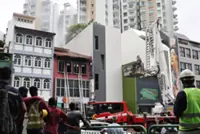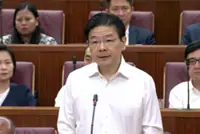
Nobel laureate Maria Ressa (pic) warned of “extremely dangerous times ahead” in an interview after social media giant Meta ended its US fact-checking programme on Facebook and Instagram.
Ressa and the Rappler news site she co-founded have spent years fighting online disinformation while battling court cases filed under former Philippine president Rodrigo Duterte after critical reporting of his deadly drug war.
The veteran journalist and winner of the 2021 Nobel Peace Prize said Meta’s decision meant “extremely dangerous times ahead” for journalism, democracy and social media users.
“Mark Zuckerberg says it’s a free speech issue – that’s completely wrong,” Ressa said at Rappler’s newsroom in Manila on Wednesday.
“Only if you’re profit driven can you claim that; only if you want power and money can you claim that. This is about safety.”
Meta’s announcement on Tuesday was seen by analysts as an attempt by Zuckerberg to appease US President-elect Donald Trump before his inauguration this month.
Trump has been a harsh critic of Meta and Zuckerberg for years, accusing the company of bias against him and threatening to retaliate against the tech billionaire once back in office.
Fact-checking and disinformation research have long been a hot-button issue in a hyperpolarised political climate in the United States, with conservative US advocates saying they were a tool to curtail free speech and censor right-wing content.
Ressa, who is also a US citizen, rejected Zuckerberg’s assertion that fact-checkers had become “too politically biased” and “destroyed more trust than they’ve created”.
“Journalists have a set of standards and ethics,” Ressa said.
“What Facebook is going to do is get rid of that and then allow lies, anger, fear and hate to infect every single person on the platform.”
Meta’s actions would lead to a “world without facts” and “that’s a world that’s right for a dictator”, Ressa warned.
“Mark Zuckerberg has ultimate power,” she said, “and he chooses wrongly to prioritise profit, Facebook’s annual profits, over safety of the people on the platforms.” — AFP










































